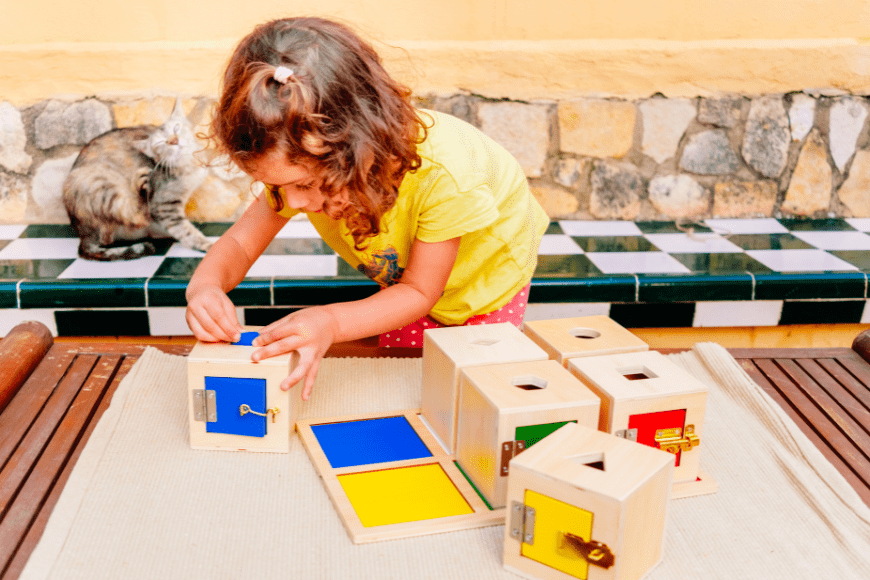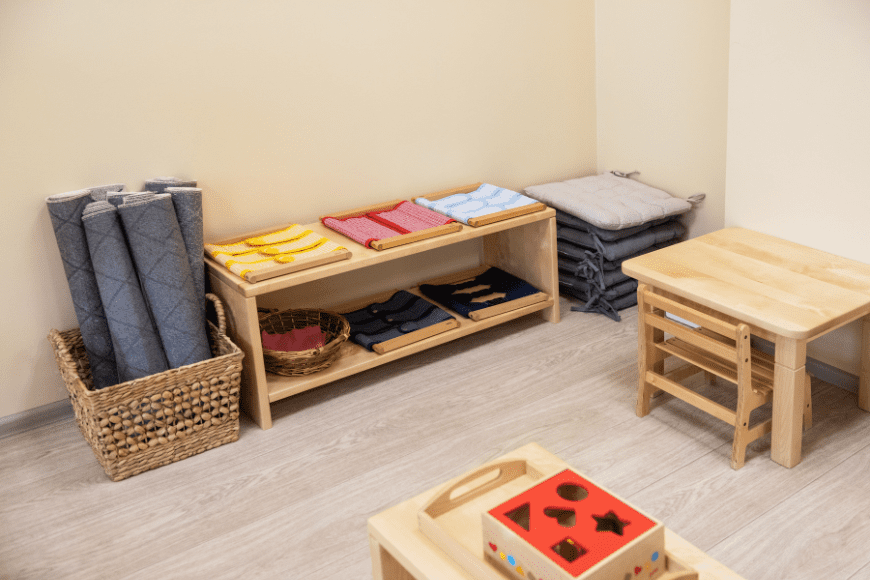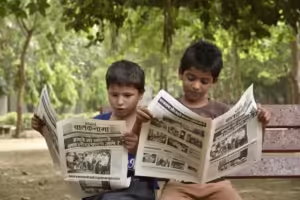In recent years, Montessori education has experienced a significant surge in popularity in India. Several reasons underlie this growing trend.
According to a recent report, the number of Montessori schools and enrolled students in India has increased dramatically. Boasting a growth rate exceeding 50% since 2016! This surge reflects parents’ increasing interest in alternative educational approaches that prioritize fostering children’s creativity, independence, and self-confidence.
Montessori Education represents an innovative philosophy and practice that places paramount importance on children’s freedom to learn from their environment. This educational approach is founded on the belief that children possess an inherent desire to learn and explore. They can do so more effectively when granted the autonomy to learn at their own pace and in their own manner. This approach not only nurtures a child’s innate curiosity and creativity but also promotes the development of their cognitive, social, and emotional skills.
One of the primary benefits of Montessori education is its ability to facilitate stress-free and pressure-free learning and interaction between children and their environment. By providing a supportive and nurturing setting, Montessori schools aid in instilling a sense of self-worth and confidence in children—a crucial factor in their future success. Additionally, research has indicated that the Montessori teaching method effectively enhances academic achievement while fostering social and emotional development.
The increasing popularity of Montessori education in India has led to a heightened demand for Montessori-trained teachers. As more parents recognize the benefits of this innovative educational approach, we expect the number of Montessori schools and students in India to continue growing in the years ahead.
Also Check: The Montessori vs. Traditional School – Which is Better?
The Logic Behind the Rise of Montessori Education in India?
Montessori education has been on the rise in India in recent years, and this upward trajectory is anticipated to persist. The effectiveness of Montessori schools is a pivotal factor driving their increasing appeal.
Montessori schools in India emphasize three core principles:
- Value-based education:
Montessori education places great importance on values and ethics, imparting them alongside traditional academic subjects.
- Self-directed learning and skill development:
This approach encourages children to take ownership of their learning and develop practical life skills from an early age.
- Individualized instruction:
Montessori schools focus on meeting each child’s unique educational needs, moving away from grouping students solely by age or ability.
The demand for Montessori schools in India has risen in response to these principles. Additionally, the success stories of individuals who have graduated from Montessori schools have further contributed to the popularity of this educational system.
The Montessori Method of Education: Did It Originate from Ancient India?
Montessori is a method of education developed by Maria Montessori in the early 20th century. It is recognized as one of the most popular methods of education globally.
The Montessori Method of Education centers on the idea that every child is born with a natural inclination to learn and acquire knowledge. It focuses on individualized instruction, rather than grouping students by age or ability. The method aims to educate children in both academic and practical life skills, so they can develop their full potential as human beings.
While the Montessori Method traces its roots back centuries, it is not limited to Western origins. Research has indicated that Montessori education has ancient roots in India. Examples from ancient Indian culture demonstrate how these roots have influenced contemporary educational practices. Ancient rishis and munis, for instance, imparted various life skills to children, including cleanliness, showing respect by touching elders’ feet, expressing gratitude, serving guests, and engaging in excursions. Although Montessori education originated in ancient India, it gained widespread popularity after it was introduced in Europe.
Must Read: 20 Montessori Practical Life Activities that can be Setup at Home
The Future of Montessori Education in India
The Montessori Method of teaching offers a more effective alternative to traditional educational approaches. It underscores individualized learning for each child, emphasizing their innate ability to learn independently.
In a country like India, where education plays a vital role in securing the future of its population, the Montessori method has gained traction in recent years as an alternative for children from pre-primary to high school levels, as well as for adults. Parents who previously had limited options have well-received this modernized teaching style.
The Indian government is actively promoting the Montessori Method through a national campaign showcased in schools nationwide. This campaign includes a documentary featuring the success stories of students who have participated in the program.
The government’s objective is to address workforce shortages and unemployment by fostering early childhood education through this approach. With over 200 early education centers across India, Montessori schools are gaining popularity among parents. These schools create an environment where children empower themselves to learn and explore on their terms, free from pressure or fear of failure, allowing them to take risks.
To support this approach, the Indian government is investing in the education of over 30 million children by 2024 and collaborating with schools and communities to develop a Montessori curriculum.
How to Find a Montessori School in India?
Montessori schools employ a specialized teaching approach that emphasizes child-led learning, hands-on experience, and abstract conceptualization of theoretical knowledge. These schools, known for focusing on the holistic development of children, including creativity, language skills, and social skills, can be found in various Indian cities. As of now, there are over 20 Montessori schools in Delhi and more than 100 in Bengaluru, with their numbers steadily increasing each year.
To view a list of Montessori schools in your city in India, click here.
This system consistently encourages students to discover their place in the world without being confined to specific subjects. It involves regular conferences with guides, documenting learning journeys, and allowing students to steer their course. Montessori materials provide hands-on practice and impressions of real-life scenarios. In higher grades, students engage in more abstract work, working across disciplines and collaborating with peers.
Conclusion
During a pandemic, children’s vulnerability is particularly noteworthy. Schools bear the responsibility of educating them about the situation and how to protect themselves. The Montessori Method of education offers an effective means of engaging children and educating them about pandemics without resorting to overly graphic content. Montessori’s personalized approach to education is lauded for addressing individual needs and tailoring the curriculum accordingly.





